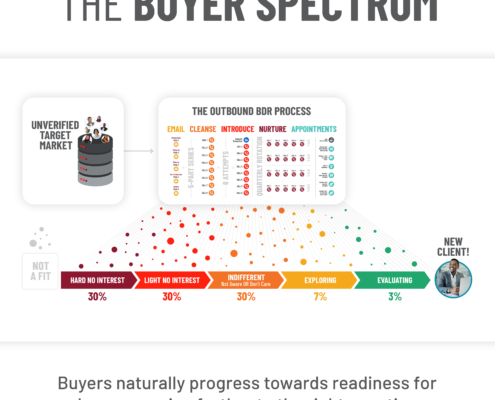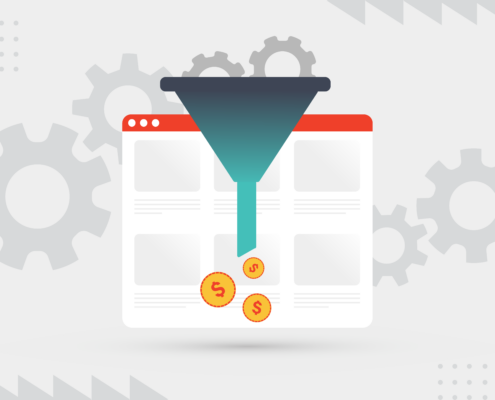

With all the ads potential buyers have thrown at them these days, they’re becoming more skeptical of the companies they invest their time and money in. Whether you’re in the B2C or B2B world, walls of resistance are higher than they’ve ever been before.
You need something that allows you to cut through the noise and develop a bond of trust with your target market. Case studies can help you do just that.
A case study is a type of marketing collateral that showcases how a business used its products or services to help a customer. Case studies outline a problem, a solution, and the result of that solution
Case studies are important for sales and marketing efforts because:
They help tell your company’s story
Case studies help you frame your company’s own story around how you help other businesses. You can think of them as narratives that give valuable insights into your business and identity.
Businesses with stale marketing tactics often say no more than, “This is how our product or service works and can help you.” A case study puts this promise into action by demonstrating how you’ve been able to help similar businesses accomplish specific outcomes.
They offer concrete proof
Credibility stems from evidence and reputation. When prospects are moving through the buying journey, they don’t want to be told hypotheticals about the potential of your product or service—they want facts. Case studies provide a credible and concise way to present those facts.
Case studies also combine factual and emotional appeal in a narrative that hooks your prospects, making them one of the most powerful forms of marketing collateral when converting prospects to buyers.
Finally, they demonstrate how your methods have worked in the past, therefore showing how they can do the same for new prospects.
They leverage the power of your customer’s experience
If a prospect doesn’t think your product or solution is for them, good luck trying to get them to become a customer. You have to present them with the idea that your product is the perfect match. Until they see themselves using the product or service and getting the kind of results they want, they’ll never buy in.
One of the most effective ways to do this is by using case studies to help prospects and potential buyers envision themselves in the shoes of your current clients. This increases the likelihood that they take action and reduces the amount of time they spend in the sales cycle. (This frees up sales and marketing resources and also lowers the customer acquisition cost.)
They help your company stand apart from competitors
Before the internet, the barriers to entry into most industries were quite high. You had to have some experience (or know someone who did). You had to have significant resources to invest in infrastructure. You had to go out there and make a name for your brand in the marketplace, a difficult task due to the limited exposure points most businesses had available to them.
In the digital age, all of these barriers were essentially eliminated. However, while the invention of the internet has largely been a net positive, it’s led to heavy saturation in most markets. This makes it very challenging to stand out from the competition.
Case studies are just one way you can set your business apart as unique when competing against dozens (or hundreds) of other businesses that sell very similar products and services. They create a narrative that can’t be replicated or recreated by other companies.
They position you as a leader
Creating case studies helps frame your brand as a leader in your industry. Your prospects will love seeing testimonials from current customers that show return on investment and tell a story they can invest in. Plus, the more case studies you have, the more experienced you look.
For example, if you operate an HVAC company and are trying to generate HVAC leads, create as many case studies as possible for the different types of businesses you’ve worked with. If one of your prospects is a school, and you’ve worked with another school in the past, it might be beneficial to create a case study. If you can show your prospects that you have experience working with companies similar to theirs, your sales credibility will go up big time.
They can be used in various sales and marketing scenarios
Case studies are highly versatile. They can be used in numerous parts of the sales and marketing cycles. Here are some examples:
- Top of funnel: Case studies are great for generating leads. You can dangle them on the internet as lead magnets. In order to get the case study, the prospect must enter some of their information (including an email address and phone number). Anyone who goes through the process of filling out this information is clearly a warm/interested lead. And because you have their contact information, you can put them into a sales funnel.
- Mid-funnel: Case studies are also highly effective for prospects who are in the middle of the funnel. You can use them in email marketing campaigns, as well as sending them out prior to a scheduled sales call or appointment to pre-indoctrinate the prospect.
- Bottom-funnel: Finally, case studies are great resources at the bottom of the funnel when a prospect is on the verge of being a customer. They can provide that last ounce of proof needed to settle an uncertain mind and put them at ease.
Unlike other marketing collateral and sales assets, case studies are capable of being leveraged at every stage of the funnel. This makes them a worthwhile investment for businesses that want to see quick growth with a limited marketing budget.
They are underutilized in most industries
The data-driven perspective often rules in business, but the psychological value of case studies shouldn’t be overlooked. In fact, even though 92% of consumers reported reading online reviews before making a purchase, only 13% of marketers name case studies as one of their primary mediums of marketing collateral. This is because they take a lot of effort to create, and they take more time to generate between the steps of research, analysis, and drafting.
That said, case studies can do something incredible that other marketing collateral can’t— they can emotionally resonate with an audience using a powerful, relevant narrative. After all, who doesn’t love a feel-good success story? And who wouldn’t want one of their own?
Case studies provide an opportunity for you to show off the context behind your data. They provide meaning for the quippy statistics you may find elsewhere and add to the credibility of not just your claims, but your company’s reputation as a whole.
Key Takeaways
As we’ve discussed, case studies aren’t necessarily as simple as they appear on the surface. When you dig beneath, you’ll find that case studies offer enormous value, complementing every aspect of your marketing and sales. Their benefits include telling your company’s story, offering concrete proof, leveraging the power of customer experience, differentiating your sales proposition from competitors, positioning you as a leader, giving you marketing collateral that can be used at every stage of the funnel, and giving you a competitive advantage.
Interested in learning more about how Abstrakt Marketing Group helps growing businesses like yours create case studies and implement them into their lead generation efforts? Contact us today to get started!




